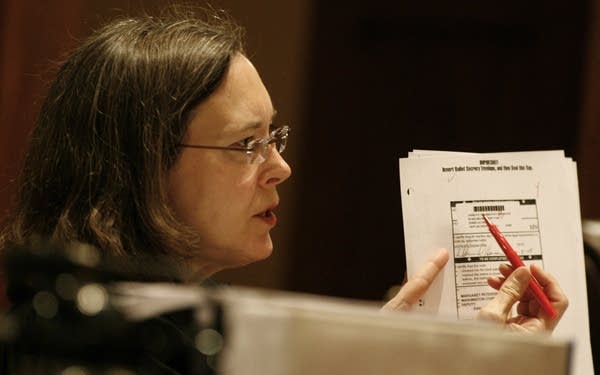U.S. Senate recount panel could make moves to shorten trial

The three-judge panel hearing Republican Norm Coleman's U.S. Senate contest will hold a hearing this afternoon on a move that could shorten the trial.
The panel also announced Thursday morning that it will change the court schedule for the next three days in hopes of streamlining the trial between Coleman and Democrat Al Franken, who leads by 225 votes.
"The court has met in order to prepare a schedule for our benefit as well as yours," Judge Elizabeth Hayden said Thursday.

The three judges --- Hayden, Kurt Marben and Denise Reilly -- will hear testimony from Plymouth City Clerk Sandra Engdahl, who is going through ballots that were not counted in her city, until 1 p.m. today.
Create a More Connected Minnesota
MPR News is your trusted resource for the news you need. With your support, MPR News brings accessible, courageous journalism and authentic conversation to everyone - free of paywalls and barriers. Your gift makes a difference.
This afternoon, the three judges will stop testimony and hear arguments from both Franken and Coleman attorneys on whether 19 separate categories of absentee ballots should or should not be included in the judge's final tally. In the past three weeks of trial, attorneys have introduced hundreds of ballots, one by one.
On Friday, the panel will continue hearing testimony in the morning, and then break in the afternoon to continue working on the order on the 19 categories in the afternoon.
The two sides have agreed on two categories:
The panel should reject absentee ballots submitted by voters in an absentee return envelope in which the witness is signed by a person identified as a notary public but no notarial seal or stamp is affixed to the absentee ballot return envelope.
The panel should reject absentee ballots cast by non-registered voters who failed to register to vote.
Hayden said the panel would likely have its order ready by Monday afternoon.
